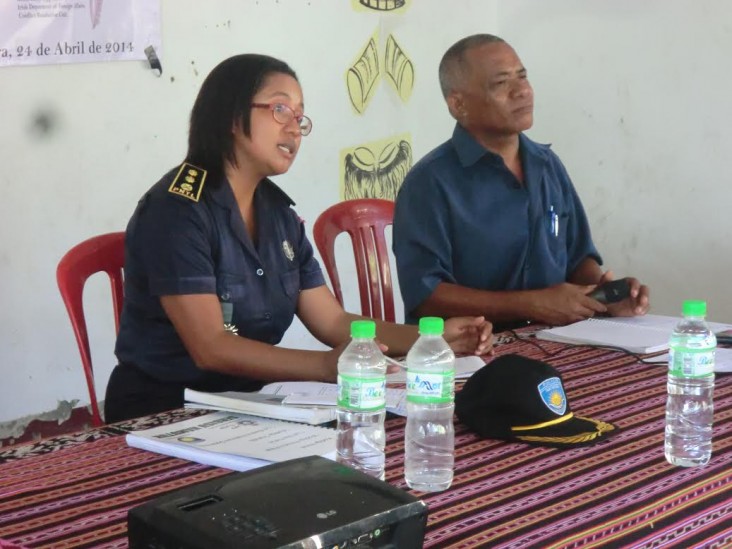|
Purpose: To increase civil society monitoring as well as analyze community-police relations in order to advance security sector development in Timor-Leste. |
Location: Baucau, Aileu, Liquica, Bobonaro, and Manatuto districts. |
|
Partner: Belun (local Non-Governmental Organization) Sub-grantee: Fundasaun Mahein |
Duration: September 2013 – September 2016 |
|
Cooperative Agreement: $1 million |
Background:
One of the primary goals of the U.S. Government (USG) in Timor-Leste is to promote stability and to create conditions for this young country to emerge as a secure, democratic, and prosperous state. While the United Nations Integrated Mission in Timor-Leste departed in 2012, the country continues to face challenges in bolstering stability, strengthening weak security sector institutions, maintaining the rule of law, and addressing gender-based violence. USG assistance, through the Department of Defense, the Department of State, the Department of Justice, and the U.S. Agency for International Development (USAID), aims to support the Government of Timor-Leste (GOTL) and security forces to institutionalize Timor-Leste’s significant progress in maintaining the stability needed for its growing population to thrive in the coming years.

Summary:
USAID's Civil Society Monitoring of Security-Sector Development Project (CSM-SSD) aims to improve the Timor-Leste National Police’s (PNTL) responsiveness to mitigating conflicts and ensuring overall public safety and security. Funded through the Department of Defense’s Security and Stabilization Assistance Program, USAID’s CSM-SSD Project contributes to the development of the rule of law and the security sector by monitoring and mapping threats to public safety, improving police-community relations, and strengthening the PNTL’s ability to respond to the needs and concerns of Timorese citizens. The project extends Belun’s online “Early Warning, Early Response” (EWER) conflict mapping activity and also supports the independent security sector watchdog non-governmental organization, Fundasaun Mahein. It aims to build the skills of civil society actors to engage in policy development and monitoring, to improve reporting about the security sector, and to strengthen preparedness for managing potential conflicts. The project also includes a capacity building component to increase the long-term sustainability of both local organizations.
USAID’s Civil Society Monitoring of Security-Sector Development Project’s major activities include:
- Effective monitoring of EWER through a network of 30 community-based monitors in 15 administrative posts who gather data on 65 human security-based indicators of situational change, incidents of violence (including those initiated by members of the security forces), PNTL performance, and PNTL-community relations;
- Report out changes in the security sector, regulations, and PNTL leadership and performance in the field—including any human rights violations—via print and electronic media (radio) and the internet;
- Establish a Conflict Prevention Response Network (CPRN) and provide training to its members on Conflict Transformation Training through the EWER Conflict Prevention Fund; and
- Share relevant EWER information and data with the GOTL’s Secretary of State for Security, PNTL, and other non-government actors.








Comment
Make a general inquiry or suggest an improvement.